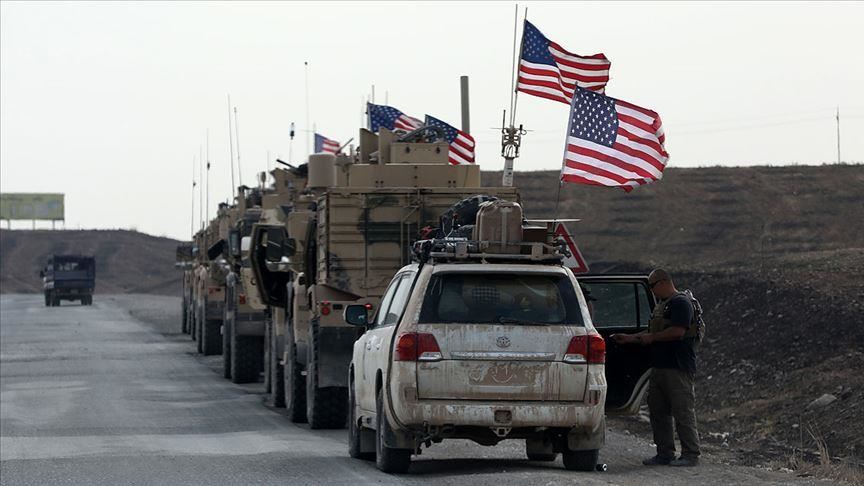Alwaght- With the US withdrawal from Afghanistan in August 2021, northern Syria relatively remains the only active combat area for the American military in the world. With the rise of the Ukraine crisis to the center of world, including the US public, attention, the American military activities in Syria's north have turned into a forgotten issue, to an extent that President Joe Biden last week reminded the Americans that the country is still actively involved in a battle abroad. This reminder followed repeated rocket and drone attacks on the US military bases in the north which the White House leaders claimed drew retaliatory strikes from their forces.
Meanwhile, the White House seeks to paint effective the military presence in northern Syria and the ability of these forces to counter the increasing challenge of attacks by resistance groups whereas it seems that strategy confusion is dominant over the country's military presence status in the region.
US broadening its northern Syria bases
There are various, and something conflicting, figures about the number of the US forces, the quality of their equipment, and the range of their activities in the north. What can be drawn from leaked local reports about the American military activities is that the Pentagon has headed to quiet and covert expansion of its presence in this part of the war-ravaged country.
The Pentagon says that 503 US troops, with the exception of alternate forces, are serving in Syria. But some estimates say that more than 2,000 American troops are present around the bases located in Hasakah, Deir ez-Zor, and Damascus suburbs, namely Al-Tanf base.
In April, a spokesman for the Syrian Tribes and Clans Council, Sheikh Mudar Hammad al-Ass'ad, revealed to the Nedaa Post news outlet the distribution of US bases in northeastern Syria and the recent expansion of the Shaddadi base. According to Ass'ad, 28 US outposts are currently deployed in Syria. These bases include more than 2,000 troops, under the pretext of supporting the so-called Syrian Democratic Forces (SDF), and preventing the re-emergence of ISIS terrorist group.
The US military bases in eastern Syria are deployed in the area east of the Euphrates River from southeastern Syria near the Al-Tanf border crossing, to the northeast near the Rmelan oilfields, and are distributed in Hasakah and Deir ez-Zor. The distribution of these bases made them resemble the cordon that surrounds the sources of Syrian oil and gas located east of the Euphrates River, which represents the majority of the underground wealth of Syria and the American push to control them.
The Shaddadi base, located 55 kilometers south of Hasakah, is the largest US military base in Syria and the American forces have captured more territory with the help of SDF militias, backed by them to help expand the militia, according to Nedaa Post.
The US forces have captured more land owned by the family of Sheikh Hammad Ali al-Assaad, an elder of the Jabour tribe south of Hasakah, located south of the city of Shadadi, to expand its military base, according to al-Ass'ad. He pointed out that the area of the base was formerly about 1,000 acres, it is expected to capture the entire land without buildings during the recent expansion and its area is around 2,000 acres.
The expansion, and possibly troop member boost, in the north is part of a broader long-term plan in the region both to keep active hot spots along the security belt of the Axis of Resistance from Tehran to Beirut and to cover its military weakness in the face of growing attacks and also to enhance its maneuvering power for rapid movement of forces between Iraq and Syria. Additionally, with regard to the scandalous exit from Afghanistan that drew severe internal and foreign criticism against Biden administration, the Democrats are afraid of repeat of the same scandal in Syria.
Reasons Biden failed to justify Syria war
Though the National Security Coordinator for Middle East and North Africa Brett McGurk last year noted that the US forces are positioned in Syria mainly to reduce violence, maintain the pressure on ISIS, address Syrian crisis, and protect Israel, Biden still needs to win support of the Americans to continue the military presence in Syria's north and justify battling there. For some reasons, he failed to do so.
First, the Syrian war is highly complicated. On the one hand, it is a civil war in which numerous militia groups with different ideologies clashed with the government forces, and on the other hand, with the widespread deployment of foreign terrorists and the role of numerous regional and extra-regional foreign actors, it is considered an international conflict and crisis. Therefore, the US is only a force with limited power in the Syrian political and field equations, and the White House clearly cannot convince the public opinion that this costly military presence, which is with casualties among the military ranks, is successful, especially that the chaotic nature of the withdrawal from Afghanistan has increased calls for the White House to reduce its military presence across the region.
Second, unlike Iraq and Afghanistan wars, the US lacked a reason to justify its stay in Syria since Trump announced end of ISIS. It is for this lack of reason that occasionally the American officials declare elimination of ISIS ringleaders in the north to convince the public that it is necessary to remain in Syria.
Third, the continuation of the Russian forces in Syria may help Biden's agenda to keep his forces in the Arab country — because geostrategically, this can guarantee that Russia will not relocate its full forces to Ukraine— still, it is unclear the White House can justify this military presence for American public who want the perpetual and crisis-generating US wars to end. Continuation of military presence in Syria is even questioned by a large number of the politicians and military commanders due to increasing future possibility of direct clashes with the Russian, Syrian, and Iranian forces.



























